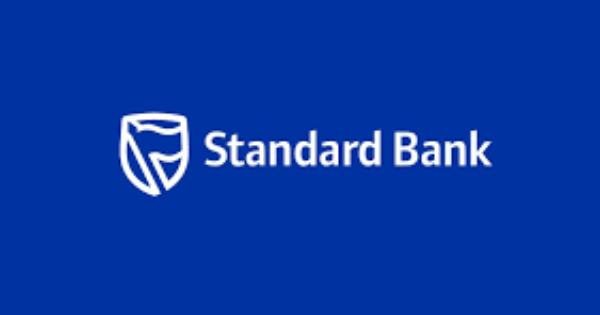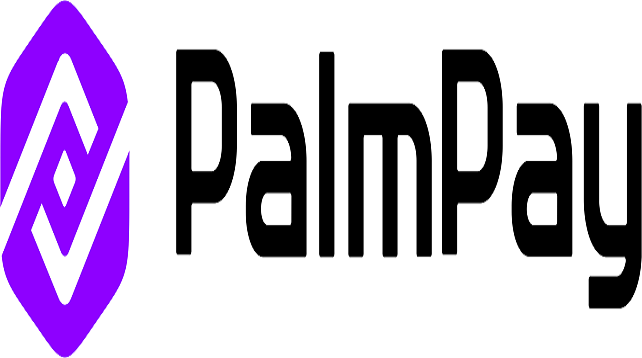E-Financial
Standard Bank Targets Bulk of Africa’s Payments with Unayo

Standard Bank has unveiled a plan to facilitate the majority of the continent’s payments through its new digital platform, Unayo.

Unayo, which means ‘you have it’, aims to connect Africa’s informal market to financial services.
Standard Bank predicts Unayo will ultimately facilitate up to 90% of Africa’s payments, as the platform has been deployed in Botswana, Malawi, Lesotho and Eswatini. The bank says in the first quarter of 2021, the platform processed over 60 000 customer-initiated transactions.
A growing number of people are taking up digital banking and shunning the traditional brick-and-mortar branches. Banks have witnessed increased use of digital banking channels amid social distancing protocols because of the COVID-19 crisis.
Standard Bank says Unayo is a multi-faceted, interactive platform that will reach across all sectors and communities.
Through Unayo, Standard Bank will service four key payment ecosystems: salaried individuals, cross-border payments, traders and donor organisations.
The bank wants to create an ecosystem of users and merchants, with the goal of stimulating entrepreneurial activity and driving financial inclusion on the continent.
“African communities are often underserved when it comes to catering to their financial needs. Much of that is linked to barriers associated with income, access to branch services and technology, as well as the cost of transactions.
“Unayo overcomes these hurdles by enabling fully know-your-client compliant onboarding and activating mechanisms for external funding (via donors and producers) to be injected into the ecosystem, allowing people from anywhere and all walks of life to participate.”
Wally Fisher, head of Unayo at Standard Bank, comments: “Anyone with a cellphone number, agnostic of the mobile network operator and handset technology, can receive value through the use of the Unayo solution and become part of the financial world.
“It is primarily supported by USSD, which extends its reach to users without smartphone access and where they are most comfortable and active: on their mobile devices. Customers with smart mobile devices can also use the solution by downloading the app from Google Play, the iOS App Store or Huawei Gallery and access more enhanced features of the banking system.”
Unayo also provides unlimited capacity to add features and services that are determined by users of the platform and not by Standard Bank.
“It is not about us building services, but users adding services that can better connect their lives. This underlying technology means users can be the custodians of their preferences and tailor the platform for their unique needs. Business owners or individuals can create savings pockets for specific goals, like education, by opening transactional or business accounts.”
According to Fisher, Unayo holds the potential to initiate a richer savings and investing culture, as the receivers and holders of funds are able to create society and shared savings schemes.
E-Financial
GOEs’ Remit Over ₦2tn to FG in 2024

Independent revenue remittance by the Government-Owned Enterprises (GOEs) moved from ₦200 billion in 2013 to over ₦2 trillion in 2024, Fiscal Responsibility Commission (FRC) confirmed the updated figure, on Wednesday.

FRC attributed the surge to collaboration between it and House of Representatives Public Accounts Committee (PAC).
Speaking at 2025 National Conference on Public Accounts and Fiscal Governance, held at the Transcorp Hilton, Abuja, Executive Chairman of the Fiscal Responsibility Commission (FRC), Victor Muruako, Esq however notes with concern persistent challenge despite achievements. He cited weak enforcement mechanisms, limited public awareness, and the slow domestication of the FRA at the subnational level as according to him, only 26 out of 36 states have adopted similar laws.
He advocated for the establishment of a National Fiscal Governance Framework to improve coordination and strengthen audit and oversight structures.
Muruako further underscored the need for strict adherence to constitutional provisions, particularly regarding public debt and borrowing, which remain under the exclusive legislative list. He urged federal and sub-national actors to align their fiscal policies under the renewed hope agenda of President Tinubu’s administration.
Muruako called on state and local government operators across Nigeria to adopt and fully implement fiscal responsibility laws in line with the federal framework.
The event organized by House of Representatives Public Accounts Committee (PAC), brought together key financial stakeholders to discuss strategies for promoting transparency and sustainable development in Nigeria’s public financial management.
He lauded administration’s of president Bola Ahmed Tinubu commitment to strengthening financial policies aimed at driving economic growth. He emphasized that states and local governments must “key into” the Fiscal Responsibility Act (FRA) to ensure fiscal discipline and alignment with federal financial standards.
Highlighting a critical legislative gap, Muruako noted that the FRA 2007 currently outlines 54 offenses but does not prescribe punishments for offenders. He called for the urgent amendment of the Act to include stronger penalties, thereby enhancing compliance and service delivery.
“The Act must be amended speedily for efficiency and to deliver real value to Nigerians,” he stressed.
He congratulated the PAC, led by Hon. Bamidele Salam, for hosting the conference, which he described as a pivotal step toward strengthening accountability in the public sector.
He advocated for the establishment of a National Fiscal Governance Framework to improve coordination and strengthen audit and oversight structures.
Muruako further underscored the need for strict adherence to constitutional provisions, particularly regarding public debt and borrowing, which remain under the Exclusive Legislative List. He urged federal and subnational actors to align their fiscal policies under the Renewed Hope agenda of President Tinubu’s administration.
Reaffirming the FRC’s commitment to advancing transparency and reducing financial leakages, Muruako pledged continued support to the PAC in institutionalizing sound public financial management practices.
He also congratulated the committee for securing Nigeria’s hosting rights for the 2025 West African Association of Public Accounts Committees (WAPAC) Annual Conference, describing it as a testament to Nigeria’s leadership in regional fiscal governance.
E-Financial
Union Bank Challenges High Court Ruling in Jimoh Ibrahim Case

Union Bank of Nigeria has reacted to the recent judgment delivered by Justice Abike Fadipe of the Ikeja High Court involving Senator Jimoh Ibrahim, NICON Investment Limited, Global Fleet, and the bank.

The bank expressed strong disagreement with the ruling and confirmed that its legal team has been directed to file an appeal immediately. It said the court’s position on issues such as debt consolidation, locus standi, and third-party liability contradicts existing legal principles and the bank’s understanding of the facts.
In a statement released by Mrs. Olufunmilola Aluko, Chief Brand and Marketing Officer, Union Bank reiterated that the relevant debt obligations had been transferred to the Asset Management Corporation of Nigeria (AMCON), adding that all actions taken were in line with the law and standard banking procedures.
Union Bank assured stakeholders, customers, and the general public of its continued commitment to ethical practices, legal compliance, and professional conduct. It said it remains dedicated to protecting stakeholder interests and upholding the integrity that has defined its operations for more than a century.
The bank concluded by thanking all stakeholders for their trust and support as it navigates the ongoing legal process.
E-Financial
PalmPay Expands Access to Digital Insurance Through Strategic Partnerships

PalmPay, a leading digital banking platform in Africa has announced the launch of strategic partnerships with top-tier insurance providers to offer accessible, affordable and simplified insurance products directly within the PalmPay app.

This initiative reflects the brand’s continued commitment to deepening financial inclusion and underscores its mission to improve the wellbeing of everyday Nigerians.
With only about 8.9% of Nigerians currently covered by any form of health insurance, the country remains one of the least insured populations in Africa. Barriers such as low awareness, affordability challenges, and trust issues continue to hinder broader adoption of insurance products.
PalmPay’s new insurance offering directly addresses these challenges by simplifying the purchase and management of insurance policies within the app. The PalmPay insurance feature is designed to make essential coverage, from health to device, and life insurance easily accessible at affordable prices, eliminating the traditional complexities often associated with insurance.
“Insurance is often perceived as complex or inaccessible, especially among underserved communities.” said Habib Kowontan, Head of Wealth Product at PalmPay. “Through these partnerships, we aim to break down those barriers by offering simple, reliable and affordable insurance options that are easily accessible within the PalmPay app.”
With over 35 million users across Nigeria, PalmPay continues to evolve as a smart, consumer-first digital banking platform. The integration of insurance services complements its growing suite of offerings, which includes transfers, bill payments, high-interest savings, and debit card services, making PalmPay one of the most comprehensive digital banking platforms in the African market.
“Our goal at PalmPay is to remove barriers and make essential services easily accessible to everyone,” said Mr Chika Nwosu, Managing Director of PalmPay. “Through these strategic partnerships, we’re expanding our services to be more inclusive and empowering our users with products that will positively impact their lives and finances.”
This rollout marks a significant milestone in PalmPay’s broader strategy to empower users with tools that enhance their daily lives. Building not just a payments app, but a smart and trusted financial partner for millions of Nigerians.

 Broadcasting2 days ago
Broadcasting2 days agoEFCC Re-Arraigns Echefu, TStv CEO for Allegedly Defrauding Ex-Minister of N1Bn, $1.3m

 Telecom3 days ago
Telecom3 days agoNCC Wins Global ICT Award for Digital Awareness in Schools

 Broadcasting3 days ago
Broadcasting3 days agoMore Woes for MultiChoice as Ghana Orders 30% Price Cut

 News3 days ago
News3 days agoNnamani, CEO Digital Realty Nigeria Bags Digital Economy Icon of the Year @ Digital Innovation Awards in Ghana

 Telecom2 days ago
Telecom2 days ago4 Dead, 20 Others Injured as Fire Engulfs Cairo Data Centre

 News3 days ago
News3 days agoFG Says No Going Back to Nuclear Testing

 E-Financial3 days ago
E-Financial3 days agoAscensia Finance Commences Operations in Abuja

 News3 days ago
News3 days agoDICON, Saudi Firm to Produce Drones, Satellites in Nigeria



























